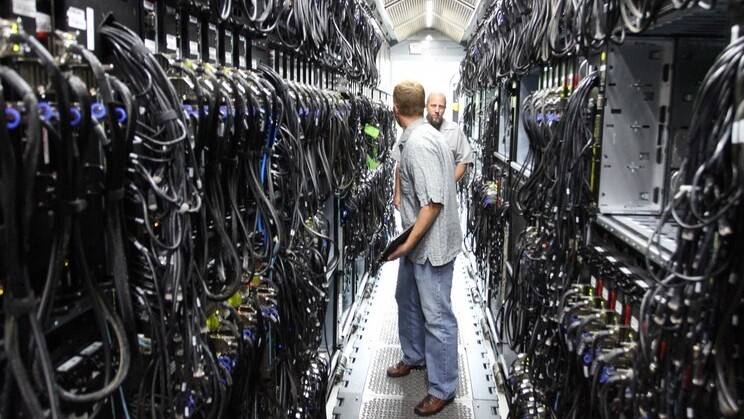
Today is the fourth summit of the Open Compute Project, an impressive statistic given that the group is a mere 18 months old. Its first major meeting had but one official member, Facebook, which supplied three ‘technology contributions.’ This fourth summit sports in excess of 50 members, and a number of key upgrades from several large computing firms.
Facebook, Intel, AMD, Applied Micro, and Calxeda are all component to the four main data center news elements that have been announced today.
First, Intel has contributed new designs for ‘silicon photonics’ tech, which the Open Compute Project claims will allow for interconnects at speeds of 100 Gbps. This, the group says, is enough bandwidth to last a number of processor cycles. For more on Intel’s recent work, its news from CES can be found here.
Facebook has contributed the “Group Hug” board, which will allow for motherboards to be build that are “completely vendor-neutral and can accommodate up to 10 SOCs.” Hence the term “group hug,” as the boards will “hug” whatever you stick into them. Given that Facebook requires farms of servers to run its service, it is hardly surprising that the company wants the most flexibility in how it builds its hardware.
The final hardware announcement comes from Applied Micro, AMD, Calxeda, and Intel yet again: they will support the Group Hug board. According to the Project, “Applied Micro […] has already built a mechanical demo of the new design.”
And last but not least, Open Compute Project announced today that it has picked up more than twelve new members, including, it wishes to highlight, “EMC, Fusion-io, Hitachi, Applied Micro, ARM and Sandisk.”
It is to Facebook’s credit that it has helped to foster the Project, which thus far has brought material improvement and interoperability to the world of data center technology. As the need for raw computing power and storage, especially in the could sense, rises, this sort of work will help lower the per-unit cost of purchasing such capabilities. That’s good for everyone.
Top Image Credit: Robert Scoble
Get the TNW newsletter
Get the most important tech news in your inbox each week.





